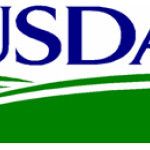- Industry: Government
- Number of terms: 41534
- Number of blossaries: 0
- Company Profile:
A section of the Trade Act of 1974 that permits the President to grant temporary import relief, by raising import duties or imposing nontariff barriers on goods entering the United States that injure or threaten to injure domestic industries producing like goods. This provision is the analog of GATT Article 19, which allows GATT contracting parties to provide relief from injurious competition when temporary protection will enable the domestic industry to make adjustments to meet the competition.
Industry:Agriculture
Section 32 of Agricultural Adjustment Act Amendment of 1935 was enacted to widen market outlets for surplus agricultural commodities as one means of strengthening farm prices. Section 32 programs are financed by a permanent appropriation equal to 30% of the import duties collected on all items entering the United States under the customs laws, plus any unused balances up to $300 million. Most funds are annually transferred by appropriators to pay for child nutrition programs, although a portion of money is reserved to buy perishable commodities (mainly produce, meat, and poultry products) that are in surplus. Section 32 funds were used to finance the Cottonseed Oil Assistance Program and Sunflower Oil Assistance Program export subsidy programs, which were effectively terminated by the FAIR Act of 1996.
Industry:Agriculture
A provision of permanent agricultural law (Agricultural Adjustment Act Amendment of 1935) that allows the President to impose import fees or import quotas to prevent imports from non-WTO member countries from undermining the price support and supply control objectives of domestic farm programs. Legislation implementing NAFTA and the Uruguay Round Agreement on Agriculture exempts NAFTA partners and WTO member countries from Section 22 quotas and fees. Under both trade agreements, the United States converted then-in-effect Section 22 restrictions into tariff-rate quotas. This effectively eliminates Section 22 as a tool to shield domestic price support operations.
Industry:Agriculture
These are public lands that lie outside a grazing district administered by the Bureau of Land Management under Section 15 of the Taylor Grazing Act of 1934. The BLM authorizes livestock grazing on these lands by issuing leases to private parties.
Industry:Agriculture
This refers to the section of National School Lunch Act requiring the federal government to subsidize all lunches served through the school lunch program, regardless of the income of the participant. Sometimes referred to as paid or full-price lunches because children buying meals pay most of the cost, as opposed to those getting free lunches or those paying not more than 40 cents for a reduced price.
Industry:Agriculture
This refers to the section of National School Lunch Act that provides additional cash reimbursements (or so-called special assistance payments) for free lunches and reduced price lunches to children from lower income families.
Industry:Agriculture
Refers to the 1987 amendment to the Clean Water Act which created the new nonpoint source management program requiring states to develop plans to identify and control nonpoint source pollution problems and providing funding for this effort.
Industry:Agriculture
Public lands within a grazing district administered by the Bureau of Land Management under Section 3 of the Taylor Grazing Act of 1934. BLM authorizes livestock grazing on these lands by issuing permits to permittees. Section 3 lands make up the vast majority of BLM-administered lands.
Industry:Agriculture
A fatal, degenerative neurological disease of sheep and goats. The similarity of scrapie to bovine spongiform encephalopathy (BSE) (mad cow) disease in cattle, with the possibility of subsequent transmission to humans, has caused the Food and Drug Administration to propose regulations to prohibit using sheep and goat by-products as a component in cattle feeds. The Animal and Plant Health Inspection Service also conducts a "voluntary scrapie flock certification program" to certify scrapie-free herds.
Industry:Agriculture
Formally known as the FIFRA Scientific Advisory Panel, this group of independent scientists was authorized by the Federal Insecticide, Fungicide, and Rodenticide Act. Its purpose is to provide scientific advice to the Environmental Protection Agency on pesticides and pesticide-related issues.
Industry:Agriculture
